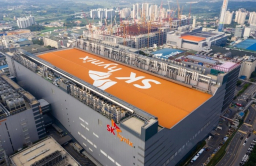-
KOSPI 2894.62 -25.41 -0.87%
-
KOSDAQ 768.86 -20.59 -2.61%
-
KOSPI200 387.30 -3.32 -0.85%
-
USD/KRW 1362 6.00 -0.44%
Samsung supplies HBM3E to AMD’s new accelerators
Korean chipmakers
Samsung supplies HBM3E to AMD’s new accelerators
The S.Korean memory chip giant has passed Nvidia’s quality test for the fifth-gen HBM, but has not yet begun shipments
By
Jun 13, 2025 (Gmt+09:00)
3
Min read
News+

Samsung Electronics Co. has delivered the fifth-generation high-bandwidth memory (HBM) to a major AI chip maker, Advanced Micro Devices Inc. (AMD), raising expectations that it may also supply its high-performance memory to the world’s leading AI chipmaker, Nvidia Corp.
AMD said on Thursday that its newest MI350 Series accelerators are powered by 288GB HBM3E chips from Samsung Electronics and US chipmaker Micron Technology Inc.
The announcement was made during AMD’s media event to introduce its latest accelerator series, which consists of Instinct MI350X and MI355X graphics-processing units and platforms.
It was the first time that Samsung Electronics’ supply of HBM3E chips had been officially confirmed. The Korean chip giant appears to have supplied AMD with the 12-layer HBM3E, or HBM3E 12H, according to the specifications of AMD’s MI350 series.
The news comes about two months after Samsung confirmed the supply of its improved HBM3E samples to major customers, without disclosing their names.

During its first-quarter earnings call with analysts in April, Kim Jae-joon, executive vice president of Samsung’s memory business, said the company expected more customers would purchase Samsung's fifth-generation HBM chips following successful sample delivery.
Analysts are now keeping a close eye on whether Samsung Electronics will succeed in supplying its latest HBM chips to Nvidia after its supply to AMD.
The Korean chipmaker has passed Nvidia’s quality tests for its HBM3 chips but has not yet begun shipments to the leading US chip designer.
HBM4 DEVELOPMENT
During the April earnings call, Samsung also said it was in talks to supply customized sixth-generation HBM, or HBM4, chips to major AI chipmakers, including Nvidia, Broadcom Inc. and Google LLC.
It projected that it could begin supplying HBM4 chips to its clients as early as the first half of 2026.
Samsung Electronics is currently lagging behind its crosstown rival SK Hynix Inc. in the HBM race, having failed to secure supply deals for its advanced memory chips with Nvidia.
SK Hynix is currently the primary provider of the latest HBM chips to Nvidia.

Worsening the situation, The Korea Economic Daily exclusively reported earlier this week that Nvidia has chosen Micron as its first supplier of the next-generation memory solution known as SOCAMM.
SOCAMM, short for small outline compression attached memory module, is a new type of high-performance, low-power memory for AI servers in data centers.
The technology is being dubbed the “second HBM,” given its critical role in enabling AI acceleration.
According to people familiar with the matter, Nvidia commissioned all three major memory makers – Samsung Electronics, SK Hynix and Micron – to develop SOCAMM prototypes, and the US chipmaker was the first to receive Nvidia’s approval for mass production.
Amid intensifying competition in the advanced memory chip race, Samsung Electronics is betting big on the sixth-generation HBM chip, HBM4 and HBM4E, which could be fitted in Nvidia’s next-generation graphics architecture Vera Rubin, the successor of the Blackwell AI chip.
To catch up to SK Hynix, Samsung also said last September that it is collaborating with foundry archrival Taiwan Semiconductor Manufacturing Company Ltd. (TSMC) to jointly develop HBM4.
Samsung Electronics shares ended down 2% at 58,300 won ($42.59) on Friday amid growing geopolitical concerns following Israel's surprise attacks on Iran.
Write to Sookyung Seo at skseo@hankyung.com
Jennifer Nicholson-Breen edited this article.
More To Read
-
 Korean chipmakersMicron set to supply SOCAMM chips to Nvidia ahead of Samsung, SK Hynix
Korean chipmakersMicron set to supply SOCAMM chips to Nvidia ahead of Samsung, SK HynixJun 10, 2025 (Gmt+09:00)
-
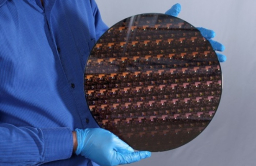 Korean chipmakersSamsung in talks to supply customized HBM4 to Nvidia, Broadcom, Google
Korean chipmakersSamsung in talks to supply customized HBM4 to Nvidia, Broadcom, GoogleApr 30, 2025 (Gmt+09:00)
-
Apr 24, 2025 (Gmt+09:00)
-
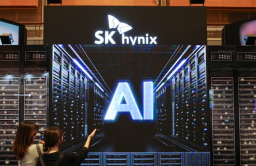 Korean chipmakersSK Hynix bets on 3D HBM as next game-changer in AI chip race
Korean chipmakersSK Hynix bets on 3D HBM as next game-changer in AI chip raceApr 18, 2025 (Gmt+09:00)
-
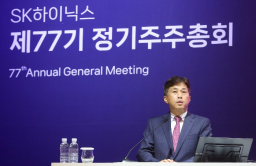 Korean chipmakersSK Hynix aims to lock in all 2026 HBM orders by mid-2025
Korean chipmakersSK Hynix aims to lock in all 2026 HBM orders by mid-2025Mar 27, 2025 (Gmt+09:00)
-
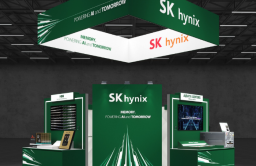 Korean chipmakersSK Hynix ships world’s first 12-layer HBM4 samples early
Korean chipmakersSK Hynix ships world’s first 12-layer HBM4 samples earlyMar 19, 2025 (Gmt+09:00)
-
 Korean chipmakersSamsung Electronics, TSMC tie up for HBM4 AI chip development
Korean chipmakersSamsung Electronics, TSMC tie up for HBM4 AI chip developmentSep 05, 2024 (Gmt+09:00)
-
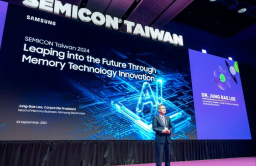 Korean chipmakersSamsung, SK Hynix up the ante on HBM to enjoy AI memory boom
Korean chipmakersSamsung, SK Hynix up the ante on HBM to enjoy AI memory boomSep 04, 2024 (Gmt+09:00)


